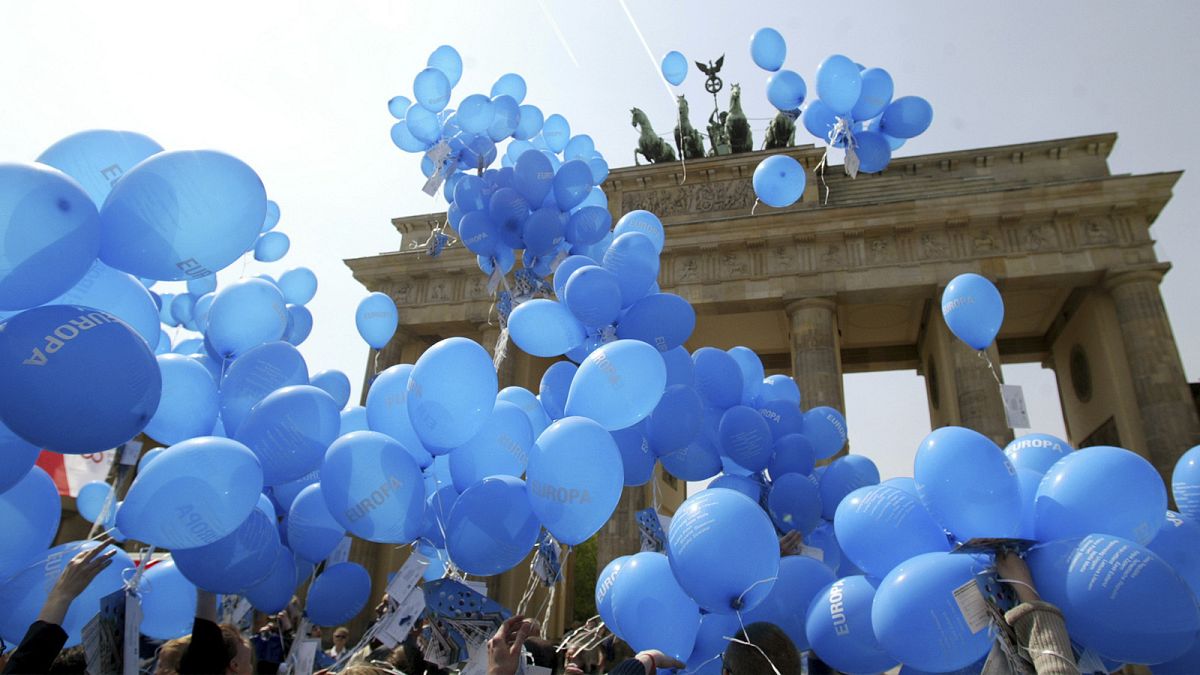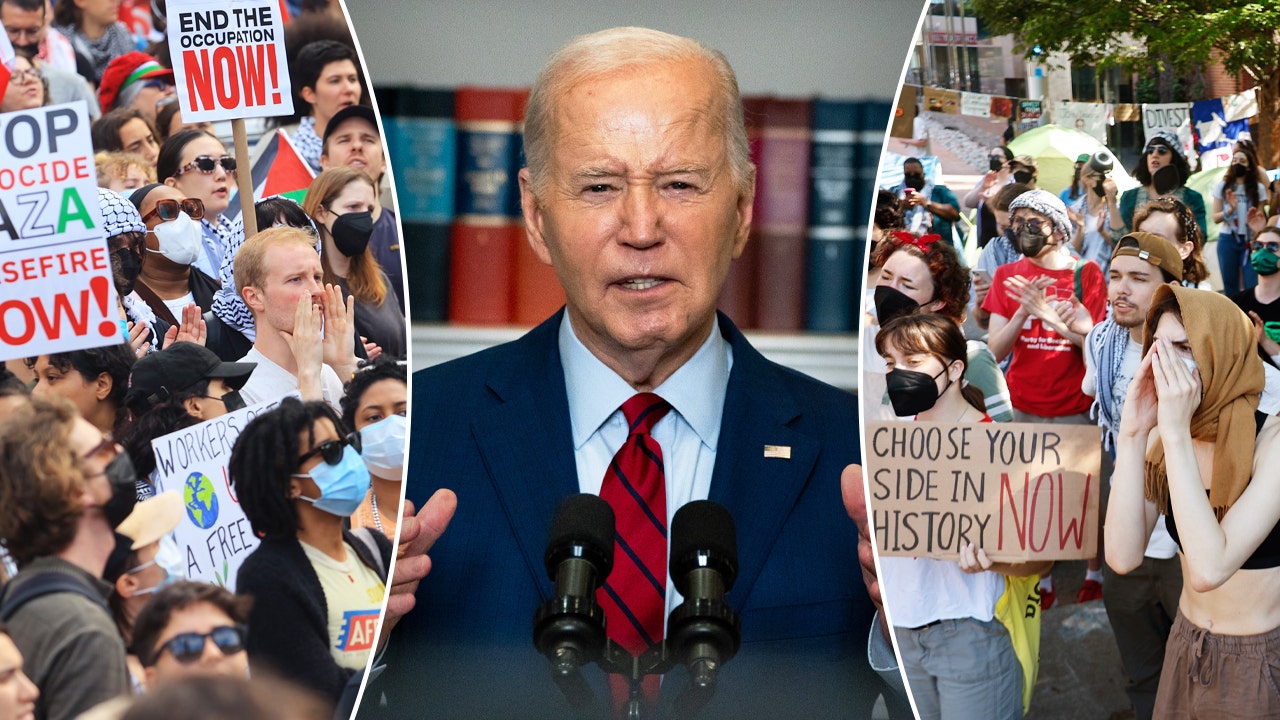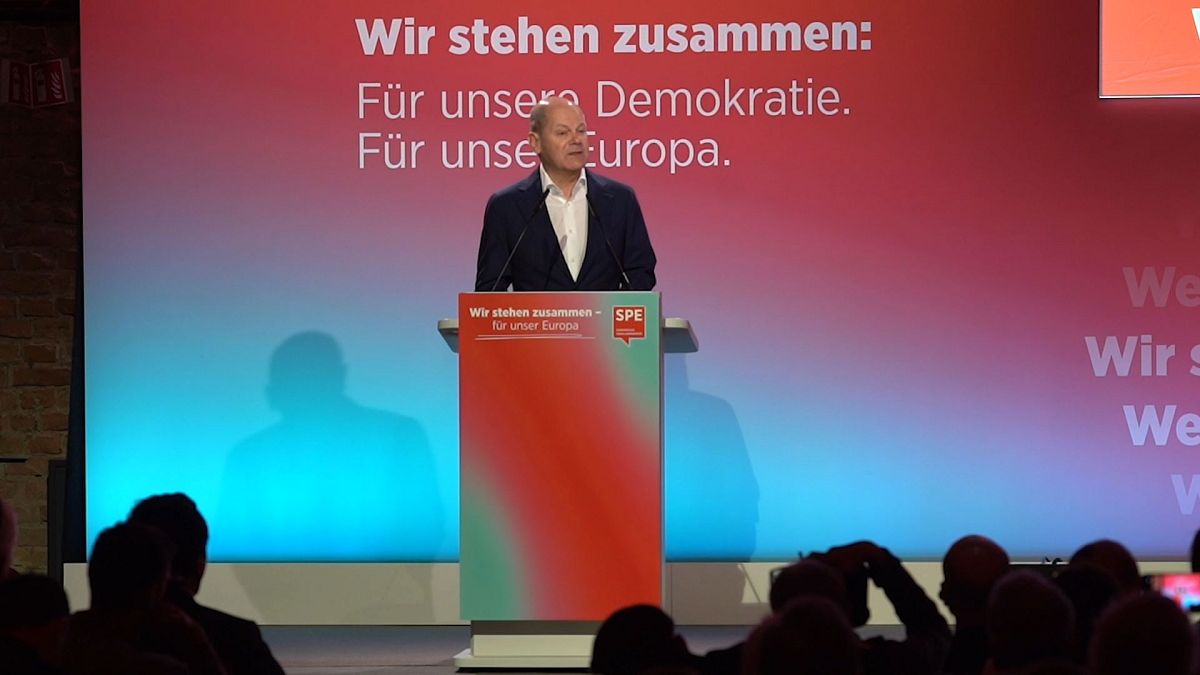World
The truth behind the €64.6-billion budget deal agreed by EU leaders
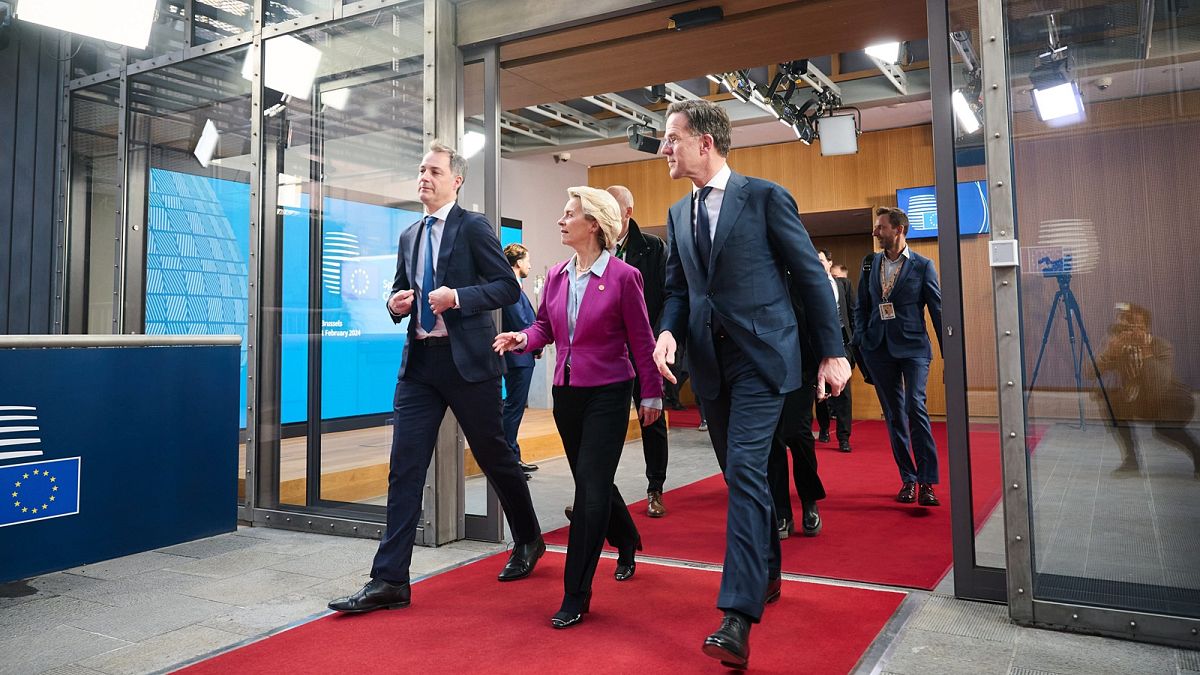
The European Union might soon add an additional €64.5 billion to its common budget. But it comes with fine print.
The top-up was for months the object of fierce bargaining among member states, each of whom, mindful of the upcoming elections to the European Parliament, pushed hard to see their wish list come true.
The negotiations kicked off in June, soon after the European Commission unveiled its proposal, and culminated in an extraordinary summit on 1 February, where Viktor Orbán, under tremendous pressure from his fellow leaders, lifted his monthlong veto.
“We had certainly some difficult choices to make, but we had a very good result,” European Commission President Ursula von der Leyen said after the meeting.
Once the gridlock broke, a new figure emerged: the bloc’s budget for 2021-2027, worth €2,018 billion in current prices (including €806.9 billion for the COVID-19 recovery fund), will be given an additional €64.6 billion until the remainder of the period.
The political deal is a considerable downgrade from the €98.8 billion top-up originally envisioned by the Commission. The executive argued the public coffers had been exhausted by the economic shockwaves of the pandemic, Russia’s invasion of Ukraine, the energy crisis, record-breaking inflation and devastating natural disasters, leaving the budget deprived of financial flexibility to react to unforeseen events.
But from the very onset, the €98.8-billion draft was met with strong resistance from member states, who would have been compelled to provide more than €65 billion in brand-new contributions. Rising interest rates, sluggish growth and diminishing revenues made the idea of writing such a cheque to Brussels all the more intolerable.
Diplomats haggled hard over how to cut down the fresh money to the bare minimum, playing a game of mix-and-match to plug the gaps.
So what’s new and what’s old in the budget top-up? Let’s break down the numbers.
Ukraine Facility: €50 billion
Boosting aid for Ukraine is the raison d’être of the revised budget. In fact, it was the only envelope that leaders left intact.
Under the agreement, the EU will establish the Ukraine Facility to provide the war-torn nation with €50 billion between 2024 and 2027 to keep its economy afloat and sustain essential services, such as healthcare, education and social protection.
The pot will combine €17 billion in non-repayable grants and €33 billion in low-interest loans, meaning member states will only subsidise the former. The money for the loans will be borrowed by the Commission on the markets and later repaid by Ukraine.
Brussels will roll out the Facility in gradual payments to guarantee reliable and predictable financing. In return, Kyiv will be asked to carry out structural reforms and investments to improve public administration, good governance, the rule of law and the fight against corruption and fraud – all of which can help the country advance its EU membership bid.
In a small concession to Viktor Orbán, the only leader who opposed the Ukraine aid, leaders will hold a debate every year to assess the Facility’s implementation, but this high-level discussion will not be subject to a vote (or possible veto). “If needed,” the deal says, leaders might invite the Commission to review the package in two years.
If the co-legislators agree swiftly on the regulation that underpins the Facility, Brussels will send Kyiv the first tranche in early March.
Migration management: €9.6 billion
This envelope survived the negotiations almost unscathed and it’s easy to see why: migration management is a key priority shared by all countries, particularly those in Southern Europe who bear the brunt of irregular arrivals.
The Commission originally asked for €12.5 billion to cover expenses on border control, relations with the Western Balkans, and the hosting of millions of Syrian refugees in Turkey, Syria, Jordan and Lebanon. The executive said the extra money was needed to realise the ambitions of the New Pact on Migration and Asylum, the holistic reform of the bloc’s migration policy that is nearing the finish line.
Leaders mostly agreed and granted €9.6 billion. “Migration is a European challenge that requires a European response,” they said in the deal.
New technologies: €1.5 billion
The EU is intent on being a leading player in the cutthroat race for cutting-edge technologies. For that, it needs money – a lot of money.
The Commission – fulfilling a grand promise made by President Ursula von der Leyen – designed the Strategic Technologies for Europe Platform (STEP) to finance avant-garde projects and promote EU-made high-tech. STEP was designed to help all member states, from the richest to the poorest, access much-needed liquidity in equal conditions.
Von der Leyen initially asked €10 billion for STEP to reinforce ongoing programmes like InvestEU and the Innovation Fund. But leaders shot down the idea and allocated only a meagre fraction: €1.5 billion to prop up the European Defence Fund (EDF).
Unforeseen crises: €3.5 billion
Since the early days of 2020, the bloc has been engulfed in back-to-back crises. From a lethal airborne disease to floods and fires that wrought untold havoc, Brussels has had a hard time adapting its tight budget to a ballooning list of expenses.
In its original proposal, the Commission requested €2.5 billion to bolster the Solidarity and Emergency Aid Reserve, which is triggered to deal with major natural disasters, and €3 billion for the Flexibility Instrument, which, as its name suggests, can be used to respond to any sort of critical situation.
Despite the worsening effects of climate change and a strong diplomatic push from Greece, a country badly hit by wildfires, leaders did not go all the way: their deal earmarks €1.5 billion for emergency aid and €2 billion for the Flexibility Instrument.
Interest payments: zero
As a result of the aforementioned crises, the EU had to press the pedal to the metal on its joint borrowing, most notably to build the COVID-19 recovery fund.
The €800-billion plan, which will be rolled out until 2026, comes with a considerable bill of interest payments, which drastically swelled as inflation hit double digits and the European Central Bank retaliated with consecutive rate hikes.
Facing a lofty invoice, the Commission pleaded with member states to add €18.9 billion to the budget review, an amount that immediately raised eyebrows. (The figure to cover overrun costs is variable and is now estimated at €15 billion.)
In the end, leaders opted for a three-step “cascade mechanism.” First, money will come from the existing provisions within the recovery fund. If this is not enough, Brussels will draw funds from programmes that are underperforming and the Flexibility Instrument. If this is still not enough, the third step will kick in and create an instrument financed by “de-commitments,” financial envelopes that were unspent or cancelled.
Only when all of this has failed will the cascade hit leaders as the Commission will be entitled to ask member states to provide direct contributions.
Redeployments: €10.6 billion
All the numbers listed above make a total of €64.6 billion but there’s a catch: countries will only cough up €21 billion. How is it possible?
Besides the €33 billion in loans from Ukraine, which involves the Commission and Kyiv, member states decided to shift €10.6 billion from ongoing EU initiatives: €4.6 billion from Global Europe, €2.1 billion from Horizon Europe, €1.3 billion from assistance to displaced workers, €1.1 billion from agriculture and cohesion funds, €1 billion from EU4Health and €0.6 from a special reserve to cushion Brexit disruption.
Speaking on condition of anonymity, a senior Commission official said the overnight cuts to Horizon Europe, the bloc’s flagship research programme, and EU4Health were unfortunate and “difficult to swallow.”
“At this point in time, it’s impossible for us to really tell you what this will mean in practice,” the official said about the potential effects of the €10.6-billion redeployment push.
In the case of EU4Health, the chop represents about 27% of the money left in the envelope, established less than four years ago in response to the pandemic. The demanded changes to both Horizon and EU4Health are likely to enrage the European Parliament, which needs to co-approve the budget review.
“This is something that is not easy,” the senior official added. But “we will religiously follow what the legislators decide.”

World
Trump, RNC Raise Over $76 Million in April, Half From Small Donors
World
North Korea propaganda song praising Kim Jong Un goes viral on TikTok

A song that praises North Korean dictator Kim Jong Un has gone viral on TikTok.
“Let’s sing Kim Jong Un, the great leader,” the song called “Friendly Father” says, according to BBC News. “Let’s brag about Kim Jong Un, our friendly father.”
“Is this a single or where can I get the whole album,” one TikToker joked. Another said, “It’s so dystopian in the catchiest way.”
“I don’t really like Kim Jong Un but he was really cooking on this song,” another said.
KIM JONG-UN PROMISES ‘DEATH BLOW’ TO POTENTIAL ENEMIES, IGNORES BIDEN’S REQUEST FOR COOPERATION
North Korea’s new song about Kim Jong Un, “Friendly Father,” has gone viral on TikTok. (API/Gamma-Rapho via Getty Images)
South Korean pop, or K-pop, and Western music are banned inside North Korea, and some defectors have cited illegally listening to outside music as a factor in their decision to defect.
“When you listen to North Korean music, you have no emotions,” North Korean defector Ryu Hee-Jin told The Washington Post in 2019. “But when you listen to American or South Korean music, it literally gives you the chills. The lyrics are so fresh, so relatable. When kids listen to this music, their facial expressions just change.”
NORTH KOREA’S KIM PUTS WEST ON NOTICE BY OPERATING ‘WORLD’S MOST POWERFUL’ TANK DURING LIVE FIRE EXERCISES
Of “Friendly Father,” Peter Moody, a North Korea expert at Korea University, told BBC News, “The song has Abba written all over it. It’s upbeat, it could not be more catchy and a rich set of orchestral-sounding sequences could not be more prominent.”
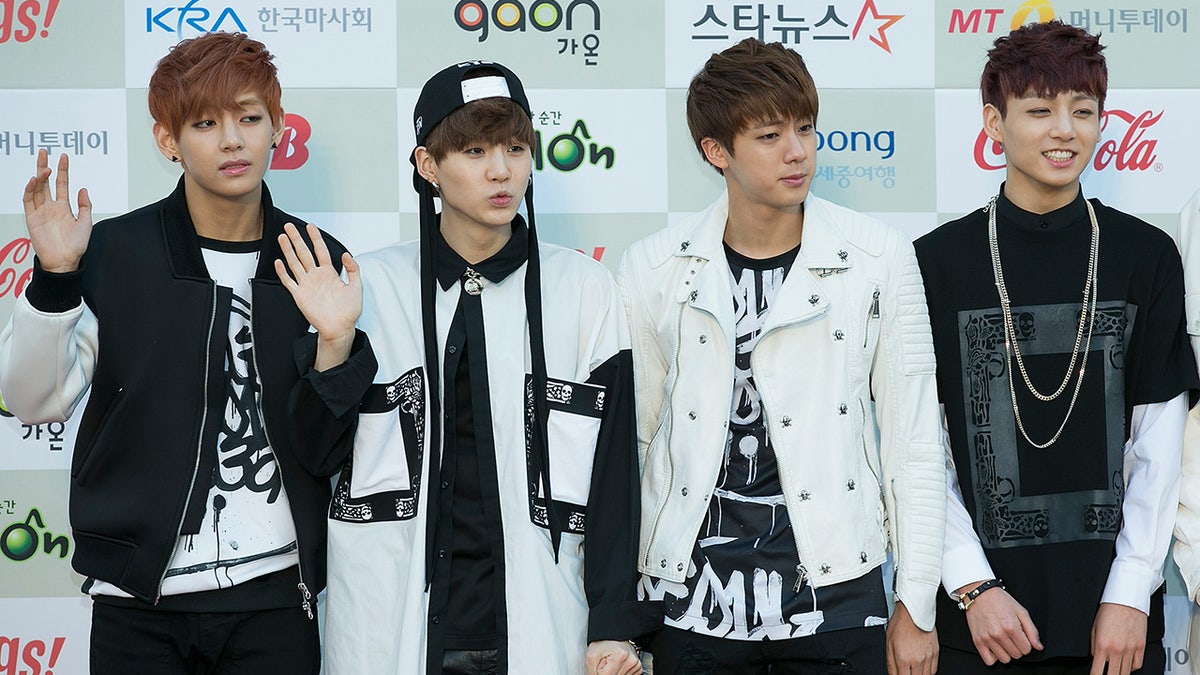
Some North Korean defectors have cited listening to K-pop music like the group BTS as helping them decide to defect. (Han Myung-Gu/WireImage)
Alexandra Leonzini of Cambridge University told the outlet North Korean authorities would have sought to make an “earworm” song with simple lyrics that’s easy to sing.
“All artistic output in North Korea must serve the class education of citizens and more specifically educate them as to why they should feel a sense of gratitude, a sense of loyalty to the party,” she said.
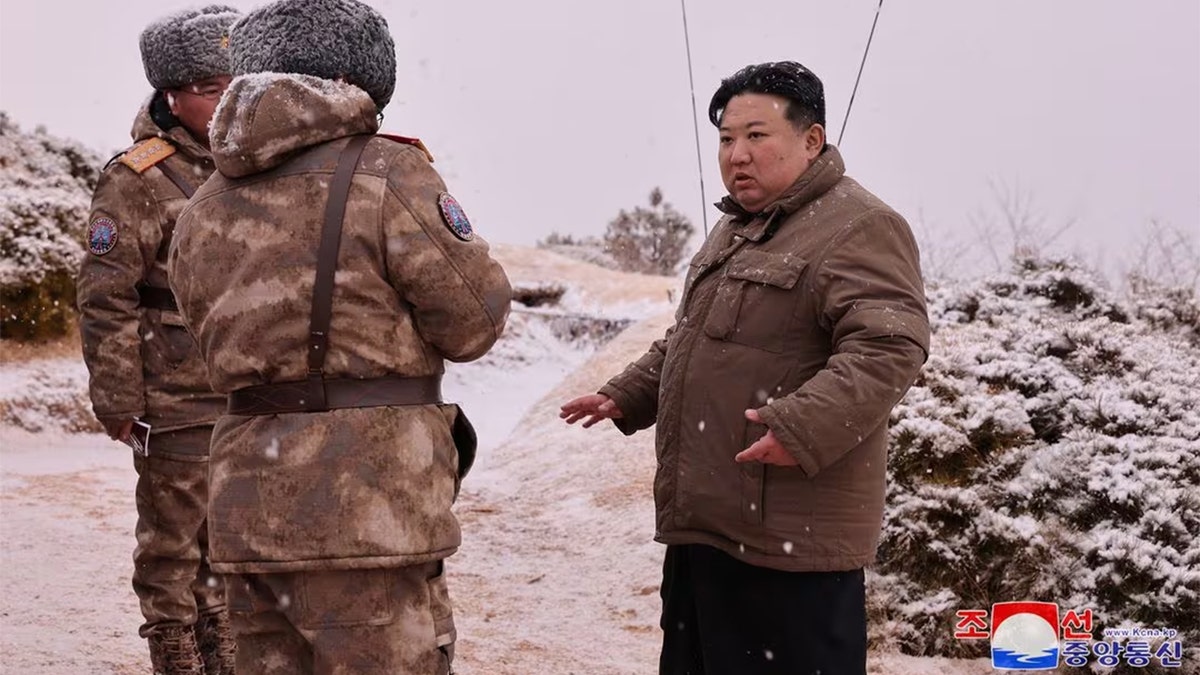
Defectors have said the government plays propaganda songs every morning throughout the country, citizens are taught choreographed dances to the songs and the lyrics are printed in newspapers. (KCNA via REUTERS)
Defectors have said the government plays propaganda songs every morning throughout the country, citizens are taught choreographed dances to the songs and the lyrics are printed in newspapers.
“By the time the song has sort of been taken into the body, it’s become part of the person,” Keith Howard, a professor at the London School of African and Oriental Studies, said. “So, they know the lyrics so well, even if they’re just doing the actions, even if they’re just listening to it. A good ideological song does that. It needs to embed the message.”
World
Spain and Argentina trade jibes in row before visit by President Milei

The spat began when Spain’s transport minister said Argentina’s Javier Milei took drugs during last year’s election.
Spain and Argentina have their diplomatic daggers drawn and have traded jibes over drug use and economic decline.
The spat began on Friday when Spanish Transport Minister Oscar Puente, during a panel discussion in Salamanca, suggested that Argentina’s President Javier Milei had ingested “substances” during last year’s election campaign.
“I saw Milei on television” during the campaign, Puente told a Socialist Party conference.
“I don’t know if it was before or after the consumption … of substances.”
He also listed Milei among some “very bad people” who have reached high office.
Milei’s office responded on Saturday in a statement condemning the remarks and also attacking Spanish Prime Minister Pedro Sanchez.
The statement accused Sanchez of “endangering Spanish women by allowing illegal immigration” and undermining Spain’s integrity by making deals with separatists, while his left-wing policies brought “death and poverty”.
— Oficina del Presidente (@OPRArgentina) May 3, 2024
Spain reacted with fury.
“The Spanish government categorically rejects the unfounded words … which do not reflect the relations between the two countries and their fraternal people,” the Spanish foreign ministry said.
“The government and the Spanish people will continue to maintain and strengthen their fraternal links and their relations of friendship and collaboration with the Argentine people, a desire shared by all of Spanish society,” the statement added.
The spat comes two weeks before a visit to Spain by Argentina’s “anarcho-capitalist” president.
Milei will attend an event of the far-right Vox party and will be avoiding meeting Spain’s socialist head of government, Sanchez.
The two have never had good relations.
Sanchez supported Milei’s rival Sergio Massa in the election that brought Milei to power in December and has also not contacted Milei since the victory.
Milei has meanwhile publicly supported Spain’s far-right anti-immigration Vox party. Vox leader Santiago Abascal also went to Buenos Aires for Milei’s investiture.
-

 News1 week ago
News1 week agoFirst cargo ship passes through new channel since Baltimore bridge collapse
-

 World1 week ago
World1 week agoHaiti Prime Minister Ariel Henry resigns, transitional council takes power
-

 World1 week ago
World1 week agoSpanish PM Pedro Sanchez suspends public duties to 'reflect'
-

 News1 week ago
News1 week agoAmerican Airlines passenger alleges discrimination over use of first-class restroom
-

 Movie Reviews1 week ago
Movie Reviews1 week agoAbigail Movie Review: When pirouettes turn perilous
-

 World1 week ago
World1 week agoEU Parliament leaders recall term's highs and lows at last sitting
-

 Science1 week ago
Science1 week agoMosquito season is upon us. So why are Southern California officials releasing more of them?
-

 Movie Reviews1 week ago
Movie Reviews1 week agoCity Hunter (2024) – Movie Review | Japanese Netflix genre-mix Heaven of Horror




